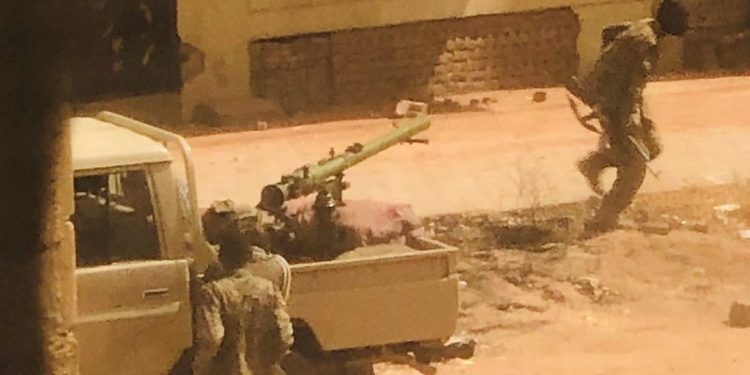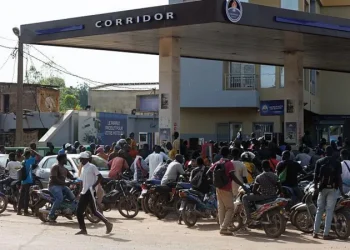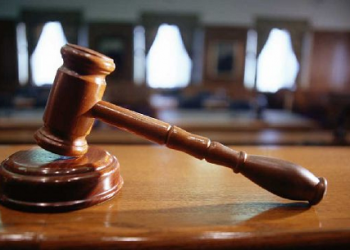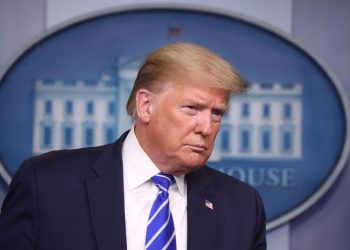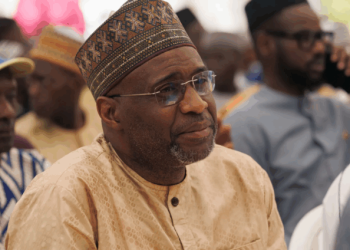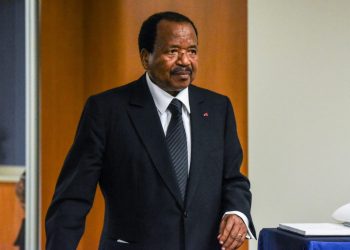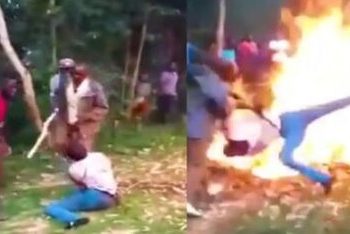British diplomats and their families have been evacuated from Sudan in a “complex and rapid” operation, Prime Minister Rishi Sunak has confirmed.
Mr Sunak said work was continuing to ensure the safety of British nationals who remain in Sudan.
The evacuees were taken to an airfield outside of Khartoum overnight to fly out of the country, Defence Secretary Ben Wallace told the BBC.
Fierce violence erupted last week in Sudan between two opposing forces.
The power struggle between the country’s regular army and a paramilitary force called the Rapid Support Forces (RSF) has seen deadly shooting and shelling in the capital city, Khartoum and in other parts of the country, leading to a growing humanitarian crisis.
Electricity is scarce and food and water supplies are running out for many.
Foreign Secretary James Cleverly said there were “specific threats and violence directed towards diplomats” which led to the decision to evacuate staff.
He said that by relocating the embassy to a nearby country, diplomats could provide more assistance to those in Sudan.
But he said the government’s ability to evacuate other British nationals was “severely limited” until fighting between warring parties stopped.
Labour’s shadow foreign secretary, David Lammy, praised military efforts to evacuate diplomats, but said he was “deeply concerned” about the welfare of British nationals who remained stuck in Sudan.
‘Nightmare’ for those left behind
Some UK nationals in Khartoum have told the BBC they felt abandoned by the UK government in recent days.
Sam, a British businessman living in Sudan, told the BBC that news of the UK evacuation “gave us hope, but in the absence of any information from the government this was clearly a solution for diplomats only”.
He described the situation as a “nightmare for those of us left behind”, and said he knew of many people from other countries like Hungary and South Africa whose embassies are making plans to evacuate nationals.
Another UK citizen in Sudan, William, described a chaotic evacuation as he told the BBC he had opted to leave the capital Khartoum on a bus, organised by his Sudanese employer to evacuate him and other nationals to Egypt.
Speaking to Newshour, he said the UK government had given him “nothing” in terms of support, adding: “We had to basically go private, we’ve had absolutely nothing but nonsense from the government and not even nonsense. We’ve had nothing.
“The internet’s just gone out, so we’ve been on 3G all day. And we were all running out of data. And so communication was becoming increasingly difficult.”
William said people hoping to be evacuated were dotted around the city until they got on the bus and described the wait as a “dicey situation” with “gunfire going off all the time”.
“We’re making quite slow progress but steady progress. So the idea is we continue going for the next two days, up to the Egyptian border, and then we’re sort of safe.”
UK citizens in Sudan are being urged to tell the Foreign Office where they are in case more help becomes available, and a hotline has been set up for those who need urgent help.
Several other countries including France, the Netherlands and Italy have also begun evacuating citizens. The US airlifted its diplomats from Khartoum in the early hours of Sunday morning, and the UK defence secretary thanked both France and the US for their assistance.
Mr Wallace said the evacuation of UK diplomatic staff was complex as the embassy was located between the two warring factions’ headquarters in the capital, Khartoum.
He added that young children were among those who were evacuated.
The BBC understands a second Cobra meeting – an emergency response committee made up of ministers, civil servants and others – is planned for Sunday evening to discuss the situation in Sudan.
source: BBC





































